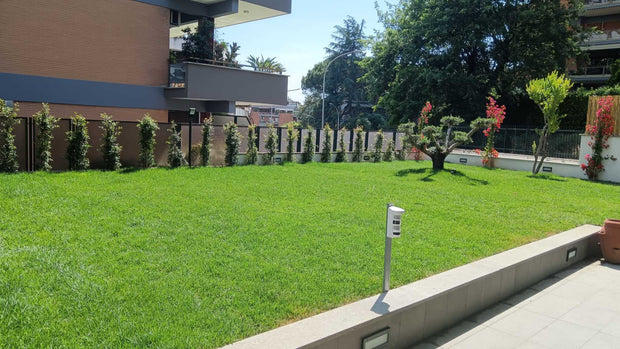Navigating the diverse educational landscape of Roman nurseries can be an overwhelming experience for many parents. With a wide range of options available, it is important to carefully consider what type of program will best suit the needs of your child. From Montessori to Reggio Emilia, each approach offers its own unique philosophy and method of teaching.
Montessori Nurseries: Fostering Independence and Self-Motivation
Montessori nurseries, for example, focus on fostering vivaio a roma and self-motivation in children. Through hands-on activities and individualized learning experiences, children are encouraged to explore their interests and develop at their own pace. This approach can be particular

ly beneficial for children who thrive in a structured environment and enjoy working independently.
Reggio Emilia Nurseries: Emphasizing Collaboration and Creativity
On the other hand, Reggio Emilia nurseries place a strong emphasis on collaboration and creativity. Children are encouraged to express themselves through art and play, while also learning important social skills through working together on projects. This approach can be a great fit for children who are more outgoing and thrive in a social setting.
Traditional Nurseries: A More Academic Approach
In addition to these two popular approaches, there are also traditional nurseries that focus on a more academic curriculum. These programs may include structured lessons in reading, writing, and math, as well as opportunities for creative play and social interaction. While some children may thrive in this type of environment, others may find it too rigid and structured.
Finding the Right Fit for Your Child
Ultimately, the key is to find a nursery program that aligns with your child’s learning style and personality. It is important to visit different nurseries, speak with teachers and staff, and observe the classroom environment to get a sense of the program’s philosophy and approach. Additionally, speaking with other parents who have children enrolled in the program can provide valuable insight into the day-to-day experience of attending that nursery.
The Importance of Fostering Independence and Confidence
Regardless of the specific approach of the nursery program, all should focus on fostering independence and confidence in children. Whether through encouraging self-directed learning, promoting creativity and collaboration, or providing a more structured academic environment, the ultimate goal should be to support each child in developing the skills and confidence they need to succeed.

Setting Goals for Your Child’s Nursery Experience
As a parent, it can be helpful to set goals for what you hope your child will achieve during their time at nursery. Whether it is mastering a new skill, making new friends, or gaining confidence in social situations, having a clear vision for what you hope your child will gain from their nursery experience can help guide your decision-making process.
Making an Informed Decision
In the end, finding the right nursery program for your child is a personal decision that should be based on your child’s individual needs and personality. By carefully considering the diverse educational landscape of Roman nurseries and finding a program that aligns with your child’s learning style, you can help foster independence and confidence in your child as they begin their educational journey.
